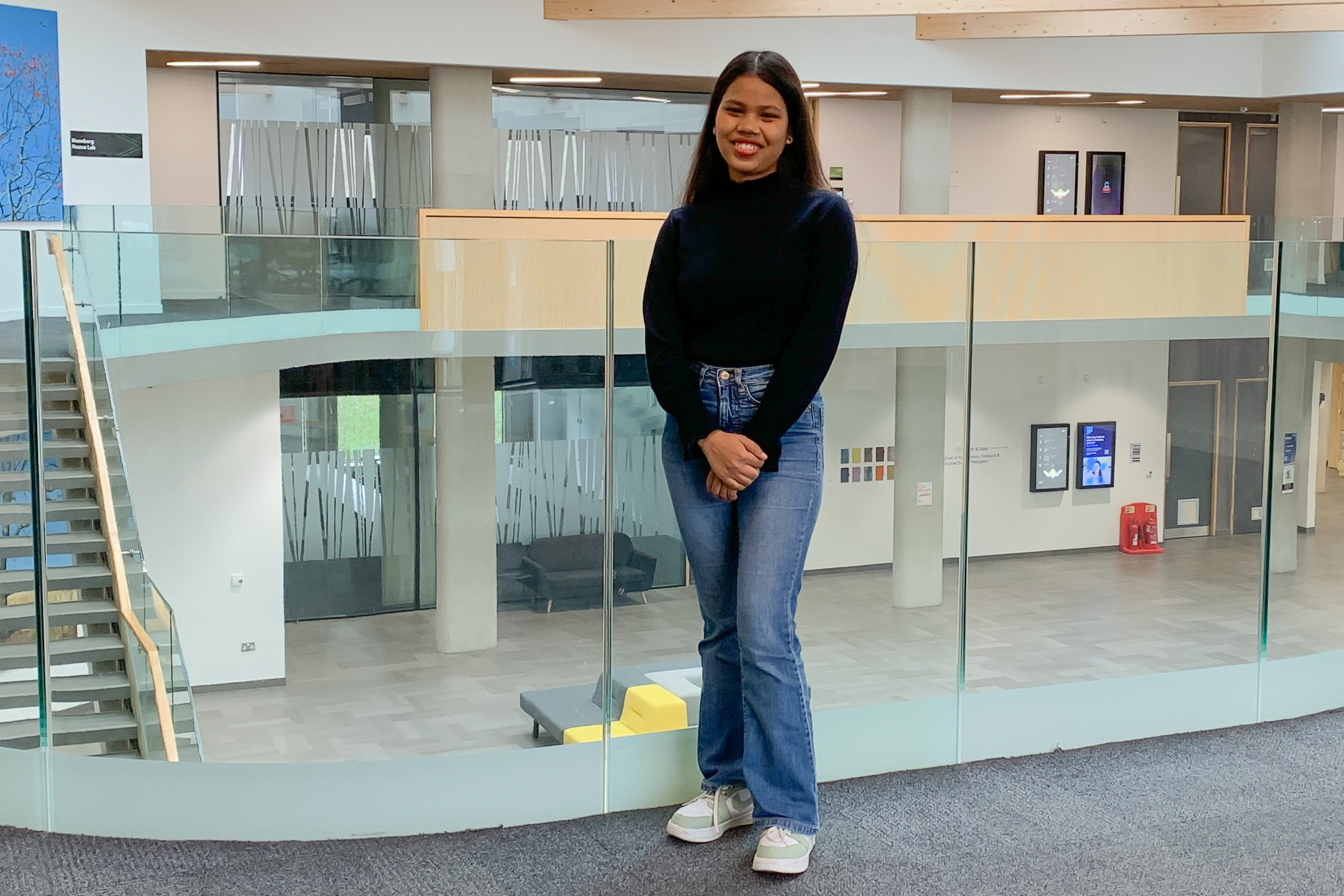Deepika Tete is studying MSc International Business and Management at Kent Business School.
“I come from the eastern part of India, Jharkhand. It’s rural and picturesque, with waterfalls, rolling hills, mountains, and a lovely warm climate. Huge fields of rice are harvested by farmers, by hand. Mostly in rural areas, people still live a sustainable life.
When I used to go and stay with my grandparents over the summer, they used to serve eco-friendly dinners and lunches on plates and cups made by my grandmom by stitching 4-8 leaves of the Sal tree, which are commonly found in Jharkhand.
I studied my undergrad in Delhi, a hugely polluted city that gave me the opposite experience of my idyllic childhood.
The more I experienced in life, the more I felt that everyone could learn a lesson from the simplicity of rural India. When I was offered a scholarship to study internationally, I chose to pursue an MSc in International Business and Management in the UK, hoping to enhance my skills in business and work in a field that could make a difference in climate action.
I was drawn to the University of Kent because the campus looked beautiful, with a mix of natural beauty and city life.
Upon further research, I discovered that I could take a placement year in business and participate in ASPIRE, which would allow me to begin launching my own venture. I attended the program from the start and made many like-minded friends who were interested in start-ups.
We were taught to consider the sustainable development goals and think of solutions to problems for our business plans. I chose to work on a business idea that could solve the bigger problem of single-use plastics and deforestation. Armed with my memories of life in India, I hit upon my start-up.
GoHusk aims to create disposable cups and plates from the agro-waste that comes from harvesting rice. I noticed that ‘husk’ is usually burned by farmers, fed to cattle, or mainly left in the fields as waste. But it can be blended into a powder and moulded into different shapes, creating plates and cups. This material is completely biodegradable and harmless to wildlife if ingested.
Studying while launching a business allows you to apply your learning in real-time, which is very helpful. My business is in its early stages, and I have a business plan and prototype designed. I aim to continue working on it for the rest of the year, with the view of potentially launching and expanding it when I graduate.’
Check our new Guide for students from India coming to study at Kent Business School and our guide for MSc International Business and Management in the UK: Complete guide for Indian Students.

